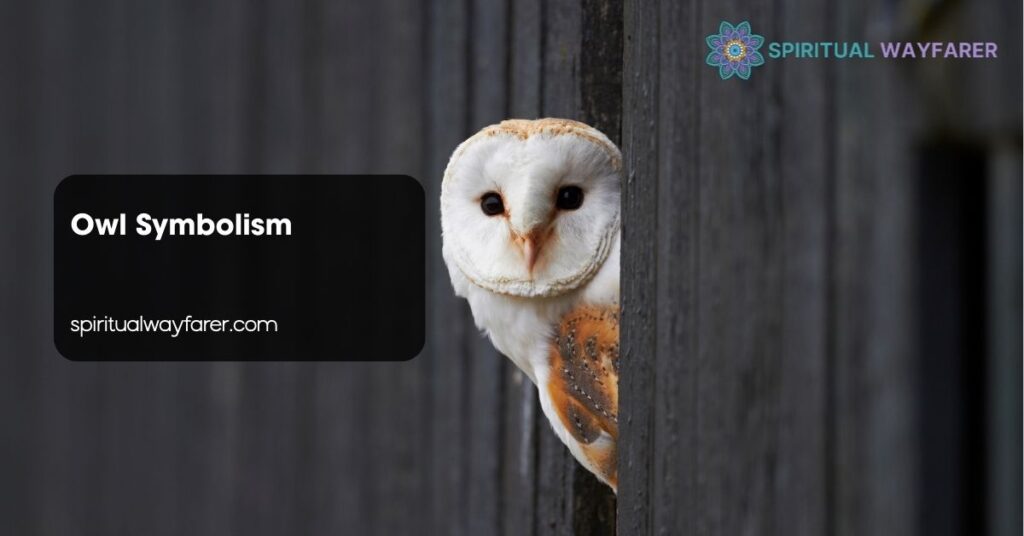Owls have captivated us for centuries with their enigmatic presence and profound symbolism. Across cultures they embody wisdom mystery and transformation. These majestic birds guide us through the unknown illuminating hidden truths and sparking our curiosity.
We explore the rich tapestry of owl symbolism exploring into its roots in mythology folklore and contemporary interpretations. Discover how owls inspire us to embrace intuition seek knowledge and navigate life’s complexities. Join us on this journey to uncover the secrets behind the owl’s enduring allure and its significance in our lives.
History Of Owl Symbolism
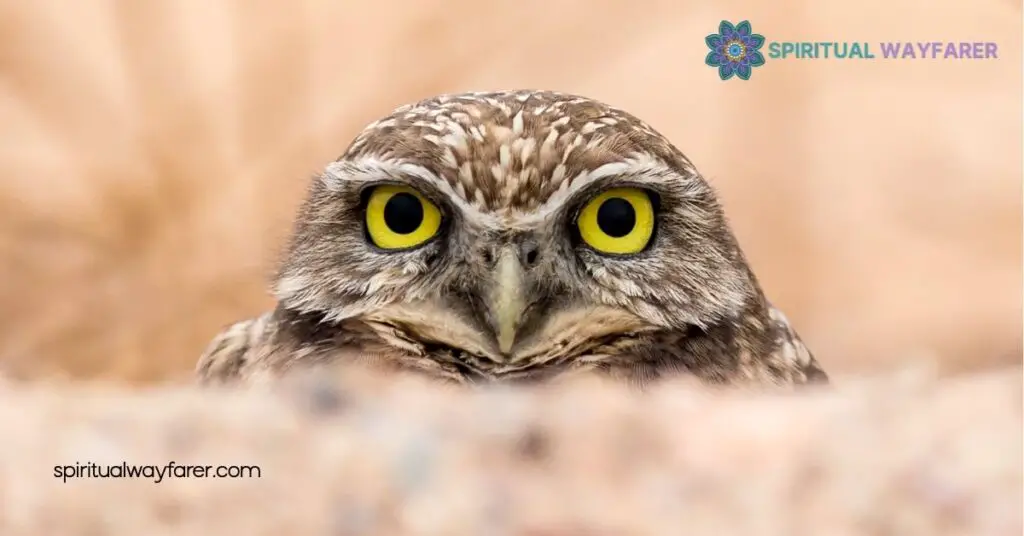
Owl symbolism dates back to ancient civilizations, where it represented wisdom and knowledge. In Ancient Greece, the owl was associated with Athena, the goddess of wisdom, appearing on coins and as a protective symbol. Native American tribes viewed owls as guardians of sacred knowledge, each species embodying different spiritual meanings. During the Middle Ages in Europe, owls symbolized mystery and were often linked to omens and the supernatural. In ancient Egypt, owls were seen as protectors against evil spirits, reflecting their role in mythology. Asian cultures, such as Japan and China, regard owls as symbols of luck and longevity, integrating them into folklore and art. These diverse interpretations highlight the owl’s enduring presence in human culture, emphasizing its role as a universal emblem of insight and intuition.
Cultural Interpretations
Owl symbolism varies widely across different cultures, embodying a range of meanings from wisdom to protection. We explore how these interpretations shape our understanding of owls globally.
Western Symbolism
In Western cultures, owls embody a spectrum of symbolic meanings. They symbolize wisdom and knowledge, rooted in ancient Greek mythology where Athena, the Goddess of Wisdom, is associated with the Little Owl (Athene noctua). This connection extends to Roman traditions, emphasizing insight and divination. Conversely, during the Middle Ages, owls represented death and omens. European folklore often linked an owl’s hoot to impending death or bad news, leading to practices like nailing owls to doors to fend off evil. Philosophically, owls serve as metaphors for self-conscious reflection and deeper understanding, reinforcing their association with wisdom.
Eastern Symbolism
Eastern cultures attribute diverse meanings to owls, highlighting protection and good fortune. In ancient Egypt, owls were regarded as guardians of sacred knowledge, symbolizing protection against evil spirits. Asian traditions, particularly in China and Japan, associate owls with luck and longevity. They are often depicted in art and folklore as symbols that bring prosperity and fend off misfortune. Also, owls in Eastern philosophy can represent transition and transformation, guiding individuals through change and uncertainty.
Owl Symbolism In Literature
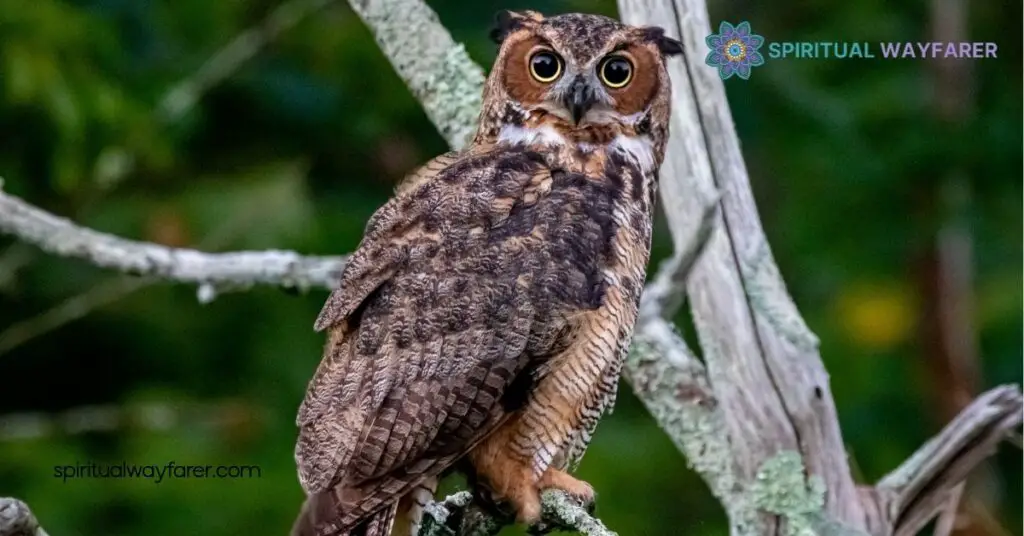
Throughout literature, owls embody wisdom and knowledge, reflecting their mythological associations. In classical texts, authors often reference Athena’s owl to signify strategic thinking and intellect. For example, in Homer’s works, the owl represents keen insight and foresight.
Also, owls appear in modern novels as symbols of mystery and the unknown. Their nocturnal nature enhances themes of secrecy and the subconscious. In fantasy genres, owls frequently serve as messengers or guides, bridging the human industry with the mystical.
Also, literature utilizes owls to convey themes of transformation and change. Characters encountering owls often undergo important personal growth or face pivotal decisions. This symbolic use underscores the owl’s role as a catalyst for introspection and revelation.
Finally, owls are depicted as omens or harbingers in various narratives. Their presence can signal impending events, both good and ill, adding depth to the story’s progression. By integrating owl symbolism, authors enrich their narratives with layers of meaning and cultural significance.
Owl Symbolism In Modern Media
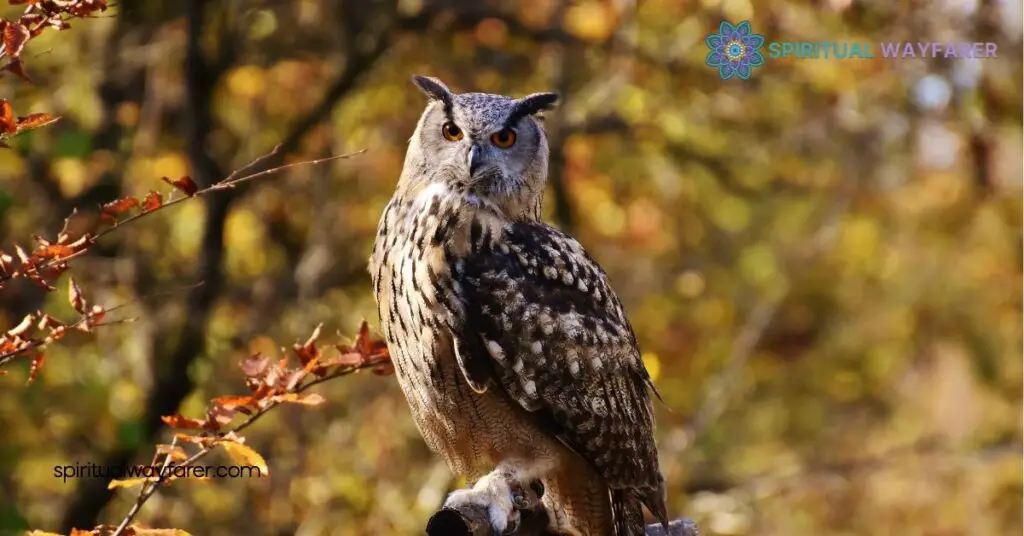
Owl symbolism thrives in modern media, embodying wisdom and intelligence. We see this through characters like Hedwig in the Harry Potter series, representing loyalty and knowledge. Films and television shows frequently use owls to signify insightful guidance, much like Athena’s sacred bird in Greek mythology.
Spiritual and mystical themes also highlight owl symbolism. In various narratives, owls act as messengers from the spiritual area, guiding characters through transformation and self-discovery. Books and movies often portray owls leading protagonists during pivotal moments, emphasizing their role in unveiling secrets and providing clarity.
Also, owls enhance storytelling by introducing elements of mystery and the unknown. Their enigmatic presence in fantasy genres serves as a bridge between the human and mystical worlds, adding depth to the plot. By integrating owls, creators infuse their work with layers of meaning, drawing on the rich cultural significance that owls hold across different societies.
| Representation | Example | Symbolism |
|---|---|---|
| Wisdom and Intelligence | Hedwig in Harry Potter | Loyalty and knowledge |
| Spiritual Guidance | Owls in fantasy novels | Messengers of the spiritual area |
| Mystery and Transformation | Owls in various films | Bridge between human and mystical worlds |
By incorporating these symbolic elements, modern media continues to honor the timeless allure of owls, ensuring their significance remains prominent and resonant with audiences worldwide.
Psychological Significance Of Owls
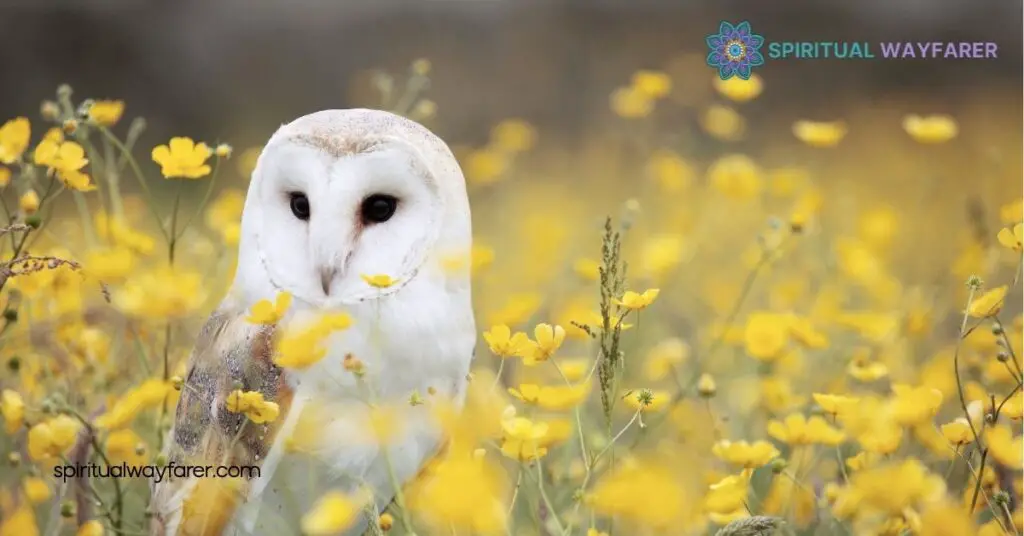
Wisdom, Intuition, and Insight
We associate owls with wisdom, intuition, and insight. Their ability to see in the dark symbolizes uncovering hidden truths and handling uncertain situations. This sharp vision encourages us to look beyond surface levels and trust our instincts. For instance, owls’ keen eyesight prompts individuals to seek deeper understanding in complex scenarios.
Representation of the Unconscious Mind
In psychological terms, owls represent the unconscious mind within Carl Jung’s analytical framework. Their connection to the night symbolizes the exploration of unknown parts of the psyche. This association inspires the courage to confront hidden aspects of ourselves, known as the “shadow” side of our personality. By embracing the symbolism of owls, we gain insight into our inner depths and foster personal growth.
Conclusion
Owls continue to captivate us with their rich symbolism and timeless presence. Their associations with wisdom and intuition inspire us to seek deeper understanding and trust our inner guidance. Across cultures and through the ages, owls remind us of the balance between knowledge and mystery. In literature and media, they serve as powerful symbols that enhance storytelling and enrich our connection to the mystical. Embracing owl symbolism allows us to navigate life’s complexities with insight and confidence. As we reflect on their enduring significance, owls encourage us to explore the unknown and appreciate the profound lessons they offer. Their enigmatic nature ensures that owls will remain a beloved emblem of wisdom and transformation in our collective consciousness.
Frequently Asked Questions
What is the symbolism of owls in various cultures?
Owls symbolize wisdom, mystery, and transformation across many cultures. In Ancient Greece, they are linked to Athena, representing strategic thinking. Native American tribes view owls as guardians of sacred knowledge. In Eastern traditions, owls are seen as protectors and bringers of good fortune. During the Middle Ages in Europe, owls were often associated with omens and death. These diverse interpretations highlight the owl’s universal role as an emblem of insight and intuition.
How are owls associated with wisdom in mythology?
In mythology, owls are commonly linked to wisdom and knowledge. The Ancient Greeks associated owls with Athena, the goddess of wisdom, using the bird as her sacred symbol. This connection emphasizes the owl’s role in representing strategic thinking and intellectual insight. Similarly, in Roman traditions, owls continued this association, reinforcing their status as wise and knowledgeable creatures. This mythological background contributes to the enduring perception of owls as symbols of wisdom.
What role do owls play in literature and modern media?
In literature and modern media, owls embody wisdom, mystery, and guidance. They appear in classical texts as symbols of knowledge and in modern novels as representations of the unknown and the subconscious. In fantasy genres, owls often serve as messengers or guides, bridging human and mystical realms. Iconic characters like Hedwig from the Harry Potter series showcase owls as loyal and intelligent companions. This symbolic use enriches narratives by adding layers of meaning and cultural significance.
How do different cultures interpret owl symbolism?
Owl symbolism varies widely among cultures. In Western societies, owls are primarily associated with wisdom and knowledge, stemming from their link to Athena. During the Middle Ages, they were also seen as omens of death. In contrast, Eastern cultures view owls as symbols of protection and good fortune. Ancient Egyptians saw owls as guardians against evil spirits, while Asian traditions celebrate them as bringers of luck and longevity. These diverse interpretations reflect the owl’s versatile role in human culture.
What is the psychological significance of owls?
Psychologically, owls represent wisdom, intuition, and insight. Their ability to see in the dark symbolizes uncovering hidden truths and trusting one’s instincts in uncertain situations. In Carl Jung’s analytical framework, owls embody the unconscious mind, encouraging exploration of the unknown aspects of the psyche. This symbolism fosters personal growth and deeper self-understanding by inspiring individuals to confront and integrate their “shadow” sides.
Why are owls considered omens in some traditions?
In certain traditions, particularly during the Middle Ages in Europe, owls were viewed as omens of death or bad news. Their nocturnal nature and eerie calls contributed to this association. Folklore suggested that an owl’s hoot could foretell misfortune or impending events. This belief contrasted with other cultures where owls symbolize protection or good fortune, highlighting the varied interpretations of owl symbolism across different societies.
How are owls portrayed in Native American folklore?
In Native American folklore, owls are often seen as guardians of sacred knowledge and protectors against evil spirits. Different tribes have unique interpretations, but generally, owls are respected as wise beings that offer guidance and insight. Their presence in stories and traditions emphasizes their role in providing spiritual protection and enhancing intuition, reinforcing the owl’s status as a powerful symbol in Native American culture.
What is the connection between owls and Athena in Ancient Greece?
In Ancient Greece, owls were closely associated with Athena, the goddess of wisdom and warfare. The owl served as Athena’s sacred symbol, representing strategic thinking, intelligence, and protection. This association highlighted the owl’s role as a messenger of wisdom and contributed to its enduring image as a wise and knowledgeable creature in Western culture.
How are owls represented in Eastern cultures?
In Eastern cultures, owls are symbols of protection, good fortune, and longevity. Ancient Egyptians viewed owls as guardians against evil spirits, while various Asian traditions celebrate owls as bringers of luck and long life. These positive associations contrast with some Western interpretations, showcasing the owl’s role as a benevolent and auspicious symbol in Eastern societies.
How do owls symbolize transformation and personal growth?
Owls symbolize transformation and personal growth by embodying the journey from ignorance to knowledge. Their nocturnal nature represents navigating through darkness and uncertainty to uncover hidden truths. In literature and psychology, encountering an owl often signifies a period of significant personal development and self-discovery. This symbolism encourages individuals to embrace change and seek deeper understanding, fostering continuous personal evolution.

